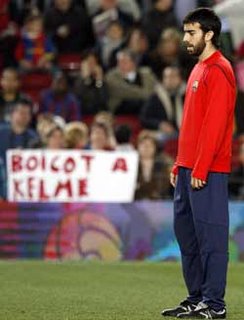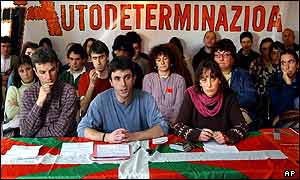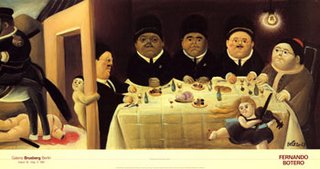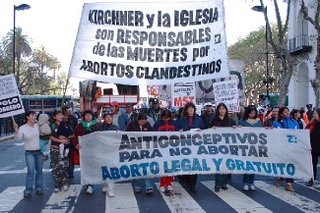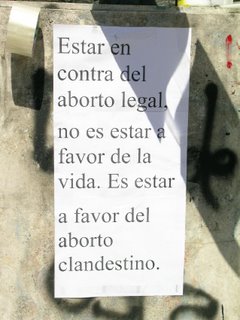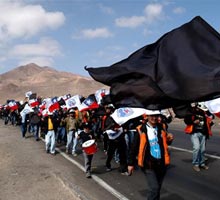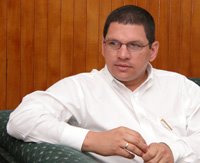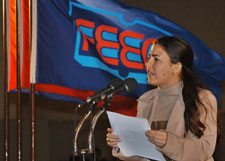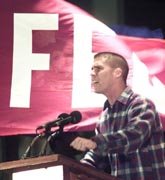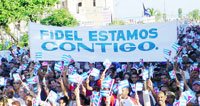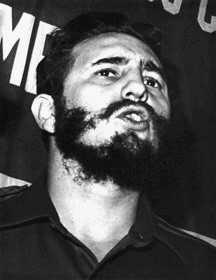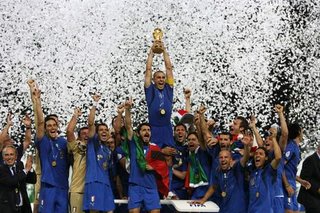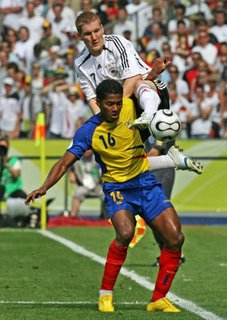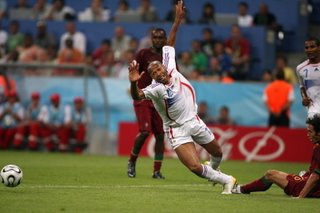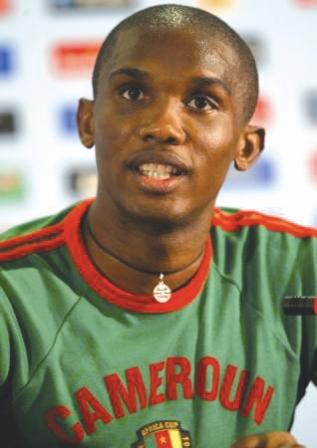Black Pride by Tego Calderon

BLACK PRIDE
By TEGO CALDERON
February 15, 2007 -- Just this morning, I was listening to radio host
Luisito Vigeroux talking about a movie project that I am working on
which co-stars Mayra Santos Febres and he was saying, "Her? She's
starring in it?"
Questioning her Black beauty.
I remember, too, when Celia Cruz died, a newscaster, thinking she was
being smart, said Celia Cruz wasn't black, she was Cuban. She was
pretty even though she's black.
As if there is something wrong with being black, like the two things
can't exist simultaneously and be a majestic thing. There is ignorance
and stupidity in Puerto Rico and Latin America when it comes to
blackness.
In Puerto Rico, Spike Lee's "Malcolm X" was only shown in one theater
and unlike all the other movies shown here, there were no subtitles.
It's as if they don't want the masses to learn.
But it's not just here - in Puerto Rico - where I experience racism.
When I lived in Miami, I was often treated like a second class
Boricua. I felt like I was in the middle - Latino kids did not embrace
me and African American kids were confused because here I was a black
boy who spoke Spanish. But after a while, I felt more embraced by
black Americans - as a brother who happens to speak Spanish - than
other Latino kids did.
Because I am well known, sometimes I forget the racist ways of the
world. But then I travel to places where no one knows Tego Calderón I
am reminded.
For instance, when I travel first class, the stewardess will say,
"Sir, this is first class," and ask to see ticket. I take my time, put
my bags in the overhead, sit, and gingerly give them my ticket,
smiling at them. I try not to get stressed anymore, let them stress
themselves.
And the thing is that many white Puerto Ricans and Latinos don't get
it. They are immune to the subtle ways in which we are demeaned,
disrespected. They have white privilege. And I've heard it said that
we are on the defensive about race.
Those things happen and it's not because of color, Tego, but because
of how you look, how you walk, what you wear, what credit card you
have. Then, they spend a couple of days with me, sort of walk in my
shoes, and say "Damn negro, you are right."
When I check into hotels and use my American Express they call the
credit card company in front of me saying the machine is broken. This
happens a lot in U.S. cities but it's not because there is more racism
there, it's because they don't know me. When I'm in Latin America, I
am known, so it's different. That is not to say that there is less
racism. The reality for blacks in Latin America is severe, in
Colombia, Venezuela, Peru, Honduras ...
Puerto Rican (and Latin American) blacks are confused because we grow
up side by side with non-blacks and we are lulled into believing that
things are the same. But we are treated differently.
My parents always celebrated our history. My dad always pointed things
out to me. He even left the PIP (Pro-Independence Party) because he
always said that los negros and our struggle was never acknowledged.
Maelo (Ismael Rivera) and Tite Curet did their part in educating and
calling out the issues. Today, I do my part but I attack the subject
of racism directly.
It makes me so happy to see Don Omar call himself el negro and La
Sister celebrate her blackness. Now it's in fashion to be black and to
be from Loiza. And that is awesome, it makes me so happy. Even if they
don't give me credit for starting the pride movement, I know what I
did to get it out there.
Young black Latinos have to learn their story. We also need to start
our own media, and forums and universities. We are treated like second
class citizens. They tell blacks in Latin America that we are better
off than U.S. blacks or Africans and that we have it better here, but
it's a false sense of being. Because here, it's worse.
We are definitely treated like second class citizens and we are not
part of the government or institutions. Take for instance, Jamaica -
whites control a Black country.
They have raised us to be ashamed of our blackness. It's in the
language too. Take the word denigrate - denigrar - which is to be less
than a negro.
In Puerto Rico you get used it and don't see it everyday. It takes a
visitor to point out that all the dark skin sisters and brothers are
in the service industry.
It's hard in Puerto Rico. There was this Spaniard woman in the
elevator of the building where I lived who asked me if I lived there.
And poor thing - not only is there one black brother living in the
penthouse, but also in the other, lives Tito Trinidad. It gets
interesting when we both have our tribes over.
Black Latinos are not respected in Latin America and we will have to
get it by defending our rights, much like African Americans struggled
in the U.S.
It's hard to find information about our people and history but just
like kids research the newest Nintendo game or CD they have to take
interest in their story. Be hungry for it.
We need to educate people close to us. I do it one person at a time
when language is used and I am offended by it. Sometimes you educate
with tenderness, as in the case of my wife, who is not black.
She's learned a lot and is offended when she sees injustices. She gets
it. Our children are mixed, but they understand that they are black
and what that means. My wife has taught her parents, and siblings, and
they, in turn, educate the nephews and nieces. That is how everyone
learns.
This is not about rejecting whiteness rather; it's about learning to
love our blackness - to love ourselves. We have to say basta ya, it's
enough, and find a way to love our blackness. They have confused us -
and taught us to hate each other - to self-hate and create divisions
on shades and features.
Remember that during slavery, they took the light blacks to work the
home, and left the dark ones to work the fields. There is a lot
residue of self-hatred.
And each of us has to put a grain in the sand to make it into a
movement where we get respect, where we can celebrate our blackness
without shame.
It will be difficult but not impossible.


